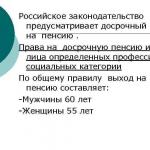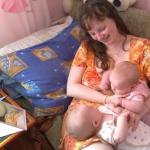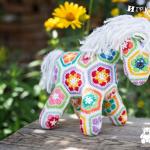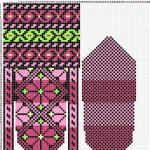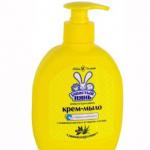Entertainment script “Red summer has come. Scenario of sports entertainment “Red summer has come”
« Kindergarten No. 6 p. Lomovo, Korochansky district, Belgorod region"
Abstract
integrated educational activities
on the topic
"The red summer has come"
educational field
“Formation of a holistic picture of the world”
Educator:
Stryabkova V.V.
2015
"The red summer has come"
Tasks:- develop children's ideas about seasonal changes in living and non-living nature in the summer;
Develop memory, thinking, the ability to correctly and competently express one’s thoughts;
Foster a culture of behavior in nature in the summer;
Teach children to compose a coherent story;
Learn to agree adjectives with nouns in gender, number and case;
Expand lexicon children on this lexical topic.
Progress of the lesson
Guys, let's say hello to our guests. Today we will have a very interesting conversation, and the riddle will help you find out what we will talk about:
I am made of heat, I carry warmth with me,
I warm the rivers, “swim!” - I invite you
And you all love me for this, I... (summer)
Summer has finally arrived. We have been waiting for it for so long!
Tell me, what signs of summer do you know? (children's answers)
Guys, do you like summer? Why is it wonderful?
Children
- flowers bloom
- you can swim and sunbathe
- to fish
- you can see different insects: butterflies, bees, beetles, dragonflies,
grasshoppers
- in summer there is a lot of greenery
- you can go to the forest to pick berries
IN. The red summer has finally arrived! We have been waiting for it for so long! Tell me, what signs of summer do you know? (Children's answers.)
IN. There are a lot of proverbs and sayings about summer. How do you think such sayings and proverbs can be explained: “In summer, dawn meets dawn.” (Long daylight hours.) “In June the sun is high, and from morning to evening it is far away.” Why do they say: in the summer every bush will let you spend the night? (Because the nights are very warm in the summer) (Children’s answers) Presenter:
Woke up at dawn
The sun behind the cloud
Let me out for a walk
Sunbeams!
Sunny: One - two - three-four-five the rays began to play!
(children dance dance)
IN. Guys, have you ever heard how the month of June is called “grain harvest”. How do you explain this name? (Children's answers.)
IN. Another name for June is “izok”, in Old Russian - “grasshopper”. And this is because one of the signs of June is the loud chirping of grasshoppers. You see how many interesting things you can learn about the summer months!
The musical work of P. I. Tchaikovsky “Waltz of the Flowers” is played
Listen to the wonderful music that sounds.
This wonderful music invites you and me to the most beautiful, flowery
clearing
(sounds of thunder and thunderstorm)
Children, what does that sound like? (children lie down on the ground)
During a thunderstorm, you cannot hide under trees; if there is no shelter, you must lie on the ground. You cannot run; it is believed that fast movement attracts lightning; You cannot be near water; You cannot touch metal objects; You must turn off your phone.
Children, look, a strong wind blew and the flower petals flew away. Let's collect them
(didactic game “Collect a flower”)
They love flowers very much. When they are told they are beautiful and tender words, let's tell them these words
(game “Pass the ball and praise the flower”)
D/i “What flowers?
Children. Beautiful, tender, vibrant, fresh, bright, colorful, fragrant, young, spring, garden, field, large, small.
».
Guys, do you think a plucked flower is good or bad?
Children. Both good and bad
What do you see as good?
Children. Decorates the house. Fills it with a pleasant aroma. Gives joy.
What's bad?
Children. Picked flowers, especially wild ones, quickly die. If everyone starts picking flowers, there will be no beauty around. There will be no flowers - bees will have nowhere to collect nectar, and butterflies will have nowhere to collect pollen. Flower seeds will not fall into the ground and new flowers will not grow from them.
What is more about the fact that we pick flowers: good or bad?
Children. Bad.
What flowers are best to admire?
Children. Those that grow in living nature: in a meadow, in a field, in a forest, in a city flowerbed.
A child reads a poem:
We need to bend over the flowers,
Not to tear them and trample them,
And to see their kind faces,
And show them your kind face
Didactic game: "I like summer"
I love summer because the sun shines brightly and it's hot (etc.)
Game “It happens or it doesn’t happen”
Do children go sledding in the summer?
Do buds bloom on trees in summer?
Do children build a snowman in summer?
Do children launch boats in streams in the summer?
Do children sunbathe and swim in summer?
What is summer?
That's a lot of light
This is a field, this is a forest
This is a thousand miracles.
There are clouds in the sky
This is a fast river
These are bright flowers
This is the blue of heights.
There are a hundred roads in the world
For children's fast legs.
N. Balashov
Hello summer!
Very kind, very bright,
Golden clear day
We'll go visit in the summer,
Let's go visit the sun.
Strawberries and flowers
Both the forest and the meadow will meet us,
Our songs are with us
There will be birds singing around.
Early morning bright ray
Ringed in the thick foliage,
The river will teach us to swim,
Wind - running through the grass.
K. Ibryaev
Here comes summer...
Summer has arrived -
Strawberry blushed:
Turns sideways to the sun -
Everything will be filled with scarlet juice.
There is a red carnation in the field,
Red Clover - Look at that!
And wild rose hips in summer
All covered in red...
Apparently people are not in vain
They call summer red!
Here are colored balls in front of you, which ball can you choose to match the color of summer? How many colored balls do we have? Why are there 4 balls?
That's right, because in nature there are 4 seasons.: You have chosen the red ball! That's right, because they always say summer is red.
Now let's write short story about summer rain and voice it using musical instruments. (Musical instruments are handed out to the children.)
A strong warm wind blew... - maracas, rattles
He brought in big white clouds, and sparkling droplets suddenly started dripping from them... - metallophone
At first they fell timidly, slowly, then faster and faster, there were more and more of them... - the pace accelerates
They made noise in the branches of trees, on roofs, window sills... - clapping on knees, clapping hands, on the table.
….and everything around was filled with the sounds of summer rain! – tutti on instruments; claps.
.: You guys liked summer rain
(game “Make a proposal”)
"Make a proposal"
He grew up in a clearing on a cornflower.
Children are swimming in the river.
On, sat down, butterfly, flower.
Game "Vegetables and Fruits"
The teacher pronounces the names of vegetables and fruits. If the name of a vegetable is heard, children squat ( vegetables grow on the ground), and if the name of the fruit - stand up ( fruits growing on a tree).
Didactic game “What things are needed in summer?”
Children are asked to look at the picture and name which ones.
drawn objects are needed in the summer. Items not needed in summer are suggested to be crossed out
Fizminutka
Our scarlet flowers
The petals are blooming.(Smoothly raise our hands up.)
The breeze breathes a little,
The petals are swaying.(Swinging arms left - right.)
Our scarlet flowers
The petals close(They crouched down and hid.)
They shake their heads, (Move your head left - right.)
They fall asleep quietly.
(final song “What color is summer”)
Summarizing.
Happy summer- warmed by the sun"
What is summer?
That's a lot of light
This is a field, this is a forest
This is a thousand miracles.
There are clouds in the sky
This is a fast river
These are bright flowers
This is the blue of heights.
There are a hundred roads in the world
For children's fast legs.
Victoria Belichenko
Lesson summary “Red summer has come.” in the second junior group
Subject classes: « Red summer has come.» 2 ml. group
Teacher Belichenko V.V.
Target: expand vocabulary on the topic « Summer»
Tasks:
To consolidate children's knowledge about the sequence of seasons, the names of the summer months, the characteristic features of summer as a season
Continue work on composing sentences, correctly agreeing words in a sentence
Develop logical thinking, memory, attention, fine motor skills.
Foster a sense of mutual assistance and collectivism
Dictionary: June, July, August, long-awaited, hot
Equipment and materials: story pictures "Seasons. Summer» , presentation on the topic Summer.
Progress of the lesson:
I. Organizational moment.
Educator: Guys, guess the riddle and tell me what time of year we will talk about today.
I am made of heat,
I carry the warmth with me,
I warm the rivers
"Take a bath!"- I invite you.
And love for it
You all have me. I - …
Children: Summer.
Educator: Right. Today is ours class will be dedicated to summer.
II. Main part. Presentation.
Summer is a ray of sunshine, (slide 2)
Warm rain from under the clouds,
Summer - bright flowers
Unusual beauty,
Summer is a warm river,
A flock of clouds in the sky.
Summer! Summer is coming to us!
Everything rejoices and sings.
Spring follows summer. Life is in full swing in summer. The sky is bright blue. The sun is shining, under its hot rays flowers are blooming and berries are ripening. (slide 3)
The rays of the sun heat the air and the earth. Water in rivers and lakes. (slide 4)
Rainwater nourishes all living things. The meadow and clearing delight with lush greenery and bright colors. (Slide 5)
Berries blush under the warm rays of the sun. (slide 6)
The chicks are growing up in the thrush's nest. Fox cubs are playing in a sunny meadow. (slide 7)
Bumblebees collect fragrant nectar. Multi-colored butterflies flutter from flower to flower. (slide 8)
Physical education for a moment.
The fragrant strawberries ripened in the forest. (slide 9)
The oriole builds its nest on a tall tree. The swallow builds its nest from lumps of damp earth, sticking them under eaves, awnings, and beams. (slide 10)
A long-legged heron catches fish and frogs. Sika deer are not visible among the bushes.
This is protective coloring from predatory animals. (Slide 11)
Beavers chew tree trunks with sharp teeth. They build reliable dams. (Slide 12)
In the gardens ripe apples turn red. The pears are ripe. (slide 13)
I am harvesting crops in the fields. (slide 14)
Riddles about summer (slide 15)
The sun is shining, the linden tree is blooming. The rye ripens, when does this happen? (Summer)
What is higher than the forest, More beautiful than the light, Burns without fire? (Sun)
Yellow sun eye,
Snow-white petal.
It's not a rose or a porridge,
What kind of flower? (Chamomile)
III. Summarizing classes
Educator: What time of year were they talking about? class?
Name the summer months.
Publications on the topic:
Abstract of the educational activity “The Red Summer has passed”“THE RED SUMMER IS PASSED” Abstract of NOD Compiled by: Goroshilova E. P. Objectives: Continue to teach children how to make small ones.
On the last day of summer, we decided to please the children and hold fun and active games, dance, and have fun. They came to visit the children.
 Some were sitting on the bench, Some were looking at the street, Tolya was singing, Boris was silent, Nikolai was shaking his leg. It was evening, there was nothing. S. V. Mikhalkov.
Some were sitting on the bench, Some were looking at the street, Tolya was singing, Boris was silent, Nikolai was shaking his leg. It was evening, there was nothing. S. V. Mikhalkov.
Summary of a lesson in the second junior group on viewing the plot painting “Summer” Integration educational areas: Cognitive development, speech development, social and communicative development, physical development,.
Report on the project “Red-Safe Summer” In the older group, in the summer healing period, the project “Red Summer is Safe” was implemented. The goal of the project: formation in children.
Scenario for physical education and recreational entertainment “Red Summer, Beautiful Summer!” Equipment: bandage, seven-flowered flower with tasks, gymnastic sticks, arch, cubes, chamomile parts (2 sets, projector, recording “Singing.
Scenario of the quest game June 1 “Hello, red summer!” in the younger group QUEST GAME “Hello, red summer!” in the younger group, children and adults gather on the playground. Host: Hello, parents, children.
Lesson summary “Red summer has come...”
Target: summarize children's knowledge about insects, flowers, berries and basic ideas about summer.
Tasks:
Reinforcing with children the names of insects, flowers and berries, activating subject, verbal and qualitative vocabulary on this topic, improving the skill of forming relative adjectives, practicing the practical use of the constructions “preposition NA - noun in the prepositional case”, achieving grammatically correct agreement of the adjective with the noun in gender and number.
Development of coherent speech, correction phonemic awareness, different aspects of attention and memory, visual-figurative and verbal-logical thinking, articulatory, fine and general motor skills.
Fostering activity, initiative, independence, listening to the speech therapist and following verbal instructions.
Equipment: hats with images of insects, images of berries, flowers, the sun, subject pictures on the topic.
Progress of the lesson
Organizing time . Look what is happening around us? What season?
Summer is coming ! Summer is coming soon!
Lots of sunshine!
Fun to play in summer–
Jump, run and gallop.
In summer, flowers bloom, insects fly, berries grow, and everything around turns green. Do you know what insects there are? You and I will become these insects and find out what happens in the clearing in the summer.
What can your insect do? The fly flies. The butterfly flutters. The bee pollinates. The grasshopper is jumping. The dragonfly flies. The bee is buzzing.
Purely speaking. To get to know our insects better, you should repeat my words a little.
For - for - for, here the dragonfly flutters.
- Ha-ha-ha, somewhere a fly is buzzing.
La-la-la, there’s a bee flying here.
Chock-chock-chock, a bug is crawling along the leaf.
Chick-chick-chick, a grasshopper jumped towards us.
Chka-chka-chka, the butterfly flew away from us.
Use of the preposition NA. Various flowers bloom in summer. Insects love to sit on flowers. And you too will sit on the flowers. Just let's remember what these flowers are called. (Rose, tulip, chamomile). Go to the board and choose any flower you want to sit on?
I'm sitting on a rose. I'm sitting on a tulip. I'm sitting on chamomile.
Physical exercise. We sat on the flowers and relaxed. But suddenly it began to rain. But insects are not afraid of rain. And you and I too, so let’s go for a walk in the rain.
Slap! Slap! Slap! Slap!
We splash through the puddles.
Slap! Slap! Slap! Slap!
We don't need an umbrella.
We are not afraid of heavy rain!
Summer has arrived!
Well, we got wet. So what?
Let's wash with soap!
Children walk in a circle, one after another, splashing their feet.
They stand facing in a circle, clasping their hands above their heads.
Perform jumps on toes, hands on the belt.
Reach up, arms outstretched.
They shrug.
They smile. They show how they soap their hands.
Relative adjectives. Insects love berries, they also know how to collect them. Now we will be harvesting berries. Each of you will choose the berries that I will now name for you.
What berries did you pick? What are their names? Insects love to make compote and jam from berries. First, some prepare compote, while others prepare jam. Then let's switch and say the opposite.
6. Summing up . You worked hard today and even managed to make jam and compote. You are tired and it’s time for us to return to the group, where a surprise awaits everyone who has worked well. But let's first say what we talked about today? What interesting things did you remember? What did you like about the lesson?Each child's work is assessed.
Summer! Summer! Summer!
Dressed in bright colors
Warmed by the hot sun
Let the summer last longer!
Program content: To form an idea about the holiday June 1st “Children's Day”. Develop intonation expressiveness of speech. Strengthen knowledge about flowers and animals. Practice solving riddles. To evoke an emotionally positive attitude towards the holidays, to involve children in the national fun.
Preliminary work:
Examination of paintings and illustrations on the theme: “Summer”, “So summer has come”, “Seasons”.
Conversation on the topic: “Seasons”, “Red summer has come”, “What summer is like”, “Why I love summer”, “Spring and summer similarities, differences”,
Reading: K. Ushinsky “Four Wishes”, M. Prishvin “Golden Meadow”, Bianchi “Sinichkin’s Calendar”.
Memorization: Poems about summer.
Children enter to the music of Krylov “About Summer”. They sit on the chairs.
Everything in the world has its own order:
We recently celebrated Spring, children,
She was a great housewife:
The fields and oak groves turned green,
Nature is dressed as if for a holiday.
Now Spring has come to replace Summer!
Summer is laughing again
Out the open window.
And sunshine and light
Full again - full.
So that cheerful laughter rings out,
The kids didn't cry
The sun is shining for everyone,
It shines the same!
We all admire your outfit,
We can stand next to you
And touch with your finger just a little...
We are glad to see you, Summer, be with us!
Educator: Summer has come. The most wonderful time. Children, do you like summer?
Educator: Everyone loves summer. But you know that the first day of summer is special, not an easy day. Many years ago, adults around the world decided that June 1st would be “Children’s Day!”
Why did the adults decide this?
What should children be protected from and why?
Children: Because they are small.
From illnesses.
Children are afraid of everything.
Children don't know anything.
Educator: This day, June 1, is celebrated by everyone. On this day they sing songs, read poems, dance, and play. And you and I will also celebrate this holiday.
The breeze caresses, blows,
The aroma of flowers invigorates,
The grass in the field is turning green,
There's a rainbow in the sky!
Educator: Today is the summer holiday. Let us praise the red summer and the clear dawn. She promised to visit us, let's invite her: Zorenka - dawn! (the children call Zorenka in chorus).
Educator:
And here she is - Zarya - lightning,
Red maiden.
In the summer he gets up early,
The people will be awakened by the sun!
Zarya: Hello, my dears!
Summer has arrived.
It was not in vain that I hurried to you,
I know: summer is lovely for all of you,
Love the scarlet dawn.
Let's enjoy the summer
Warm gentle winds!
Let's rejoice in the light
Sun, butterflies, flowers!
An outdoor game is played: “The sun is shining through the window.”
(children walk in a circle, pronounce words, perform movements).
Educator: Children sit down, relax, and guess the riddles.
(children sit on chairs).
He will wake up at dawn
And the wind will sway a little.
Butterflies and flies hear -
The ringing goes all over the edge. (bell).
The beauty of our fields,
To the delight of the bee and the bug,
No dearer to the Russian heart
My beloved's eyelashes... (daisies).
He took refuge in a field of rye
And at dawn it opened up.
He's not alone at all
Bright blue…..(cornflower).
He was born red in the spring
And I didn’t catch a cold in the snow,
The very first, the most tender,
Amazing….(snowdrop).
(Answers to riddles hang on the flannelgraph; children come up and choose the correct answer)
We have talked about flowers more than once,
They delight us with beauty,
We gave flowers to our mothers
At the most joyful holiday hour.
But I want to tell you:
“Take care of the nature of the planet,
Don’t pick flowers in vain!”
Psycho-gymnastics: “The flower slept!”
(Children stand in a circle and perform movements according to the text).
Educator: Children, now let's guess the riddles that Zarya will tell us. (children sit on chairs).
1. I’m tired of snoring in the den in winter,
In the spring, he woke up hungry... (the bear).
(Children pretend to be a bear.)
2. He jumps through the forest, he has grown up over the summer,
A completely inconspicuous short tail.
But the ears are much longer!
Visible from behind thin spruce branches!
Who is this beast? (hare).
(children are jumping).
3. A cunning cheat walks around,
Cleverly sweeping your path -
Will wag his red tail
And he will turn behind the bush.
Lives far away in the forests
Bright red…..(fox).
(children pretend to be a fox).
4. He looks like a dog, but he is not a dog,
Although he was in a fight with a dog more than once,
He searches for prey all night long....(wolf).
(children imitate the howl of a wolf).
Educator: Children, both flowers and animals need the sun. Let's assemble the sun from parts.
Outdoor game relay race: “Collect the sun.”
(A game is played, children collect the sun from parts).
We sang, played, laughed until we cried.
The animals were shown, jokingly and seriously,
The children fought with skill, ingenuity,
And now we feel sorry for the holiday to end!
And our summer holiday
Not finished yet.
Three months will be warm and bright,
Let them only bring good luck!
Educator:
We want you to grow up quickly
So that you all get tanned in the sunny summer,
We ate berries and various fruits,
And so that you have the best catch while fishing!
Walk with the whole family through the forests and fields!
We wish you a good holiday!
Dawn brings in food and treats all the children.
Conversation and drawing for secondary children preschool age"The red summer has come"
Efimova Alla Ivanovna, teacher of GBDOU No. 43, Kolpino St. PetersburgDescription of material: A summary of the conversation was developed and conducted with children of middle preschool age. The summary may be of interest to educators and parents for conducting observations and conversations in nature with children.
Target: introduce children to characteristic features summer.
Tasks: form ideas about summer, develop the ability to listen carefully to an adult and answer questions, enrich active vocabulary, and develop an aesthetic attitude towards the world around you.
Educator: Guys, the weather outside is bad today and I suggest you talk a little in the group. To begin with, I suggest you listen to the poem:
Summer has arrived -
Strawberry blushed:
Turns sideways to the sun -
Everything will be filled with scarlet juice.
There is a red carnation in the field,
Red clover. Look at this:
And wild rose hips in summer,
All covered in red.
Apparently, people are not in vain,
Summer is called red.
Educator: What is the poem talking about?
Answers.
Educator: I read a poem to you and those who listened carefully will answer me, what flowers and berries are mentioned in the poem?

Answers.
Educator: What color are these flowers and berries?
Answers.
Educator: Guys, do you like summer?
Answers.
Educator: Why do you like summer?
Answers.
Educator: Tell me, what is the weather like in summer?
Answers.
Educator: What do you like to do in the summer?
Answers.
Educator: Is there bad weather in summer?
Answers.
Educator: What changes occur in nature in the summer?
Answers.
Educator: Tell me, is it possible to run barefoot on the grass in summer?
Answers.
Educator: We've worked hard, we've been sitting too long, I invite you to warm up.

Warm-up
All warm-up movements
repeat without hesitation!
Hey! They jumped on the spot.
Eh! We wave our hands together.
Ehe - heh! The backs were bent,
We looked at the shoes.
Hey - hey! Bent down lower
We leaned closer to the floor.
Turn around in place deftly.
We need skill in this.
What did you like, my friend?
Tomorrow there will be another lesson!
Educator: You answered the questions perfectly. Guys, there is a flowerbed on our site. What's growing in this flowerbed?

Answers.
Educator: of course, onions, garlic, lettuce, parsley, strawberries, mint. And in the second flowerbed, as you correctly noted, we have flowers growing? Do you know what the flowers that grow in the flowerbed are called?
Answers.
Educator: Where else do flowers grow?
Answers.
Educator: And if we want to give mommy a bouquet, can we pick a bouquet from our flowerbed?
Answers.
Educator: That's right, we will admire our lovely flowers and invite mothers to admire them. Of course, you can’t pick flowers.
And guys, while walking on the street, what did you notice?
Answers.
Educator: Yes, beautiful butterflies fly there, bright, colorful, a grasshopper sings its song in the grass, bees pollinate flowers.
Guys, I invite you to play the game. There are flowers in front of you, now I will place them on the floor, on the rug throughout the group. You will all now turn into butterflies or bees, choose the flower you like, fly up to it, pick it up and sit down together with the flower.
I ask you to carefully examine your flowers, how they are structured, what they are made of, and we will try to convey all this beauty in drawings.
But before we get to work, I suggest we stretch our fingers.
Finger gymnastics:
Like in our garden
How many flowers are blooming!
(the thumb greets each finger, starting with the index finger, in rhythm with the text, first on the right, then on the left hand)
Daisies, marigolds,
Asters are variegated flowers,
Dahlias and leftovers,
(alternately bend the fingers, starting with the thumb, on the right and left hands at the same time)
Which one do you choose?
(make a gesture with their hands forward, palms turned up)
E. Blaginina
Educator: I want to give you beautiful drawings - coloring books with flowers on them, but unfortunately these flowers are all the same color, you need to decorate them, and in the evening you can give your gorgeous work to your mothers. I'm sure mommies will be very happy. Do you agree?
Answers.
Educator: Then let's get to work. I wish everyone a good job. If someone wants to draw themselves, then they can draw their own drawing, it is not necessary to take a coloring book. I know that we have children who really like to draw with their palms and I am sure that they will draw a picture just like that.


Educator: While you are busy with work, I will play some calm music for you. Enjoy.
Educator: It’s time for us to wrap up, your work is done, we can look at it with you and evaluate it, and give it to our beloved mothers in the evening.
Well done everyone.
Children's works:


Educator: Did you like the lesson?
What did you like most?
Do you remember the summer months?
Do you think moms will like your work?
Thank you all for your work.

